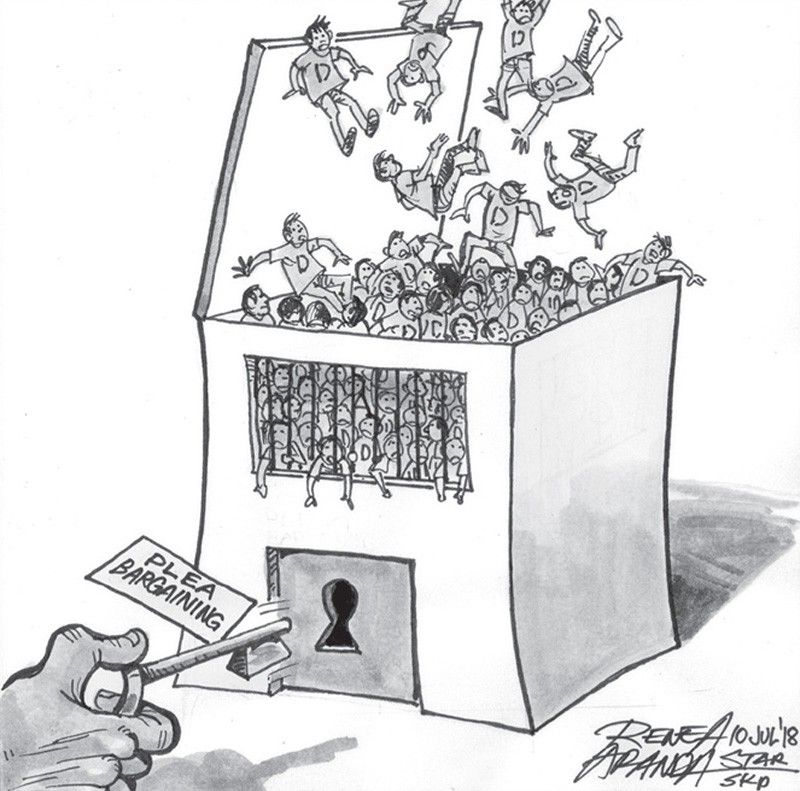EDITORIAL - Speedy adjudication

Within just two days recently, 500 inmates facing trial on drug-related charges were released on orders of the Tagaytay Regional Trial Court. That was a substantial reduction in the heavy caseload of RTC Executive Judge Jaime Santiago.
Out of some 4,500 cases in his court, about 3,000 were drug-related, a number of them pending for several years. Because of the sheer number of cases, Santiago could hear many drug cases no more than twice a year.
Similar situations have been reported nationwide. Court caseloads spiked in the past two years with the implementation of the relentless war on illegal drugs, clogging both court dockets and local jails. In Manila, the city’s police district continues to beg for relief from jail congestion as inmates die from diseases related to being cooped up in cramped and poorly ventilated detention facilities.
To ease court backlogs, the Supreme Court approved plea bargaining for drug offenses that are not punishable with life imprisonment or, under previous laws, with death. The framework for the implementation was released by the SC recently, and the Tagaytay RTC quickly applied it. At that rate of release, Santiago will soon see his caseload reduced significantly, which in turn will allow speedier adjudication of what’s left. The SC must see to it that other courts nationwide will take advantage of the plea bargaining scheme.
At the same time, authorities must study the viability of reviving night courts to handle cases of ordinance violations. This should complement the current campaign against loiterers or tambays, which the police has refocused on violators of local ordinances.
One night court in every city or municipality can quickly resolve cases of ordinance violations, imposing appropriate penalties such as fines or various forms of community service on offenders. No one should die in congested jails simply for going shirtless or being drunk.
- Latest
- Trending
























